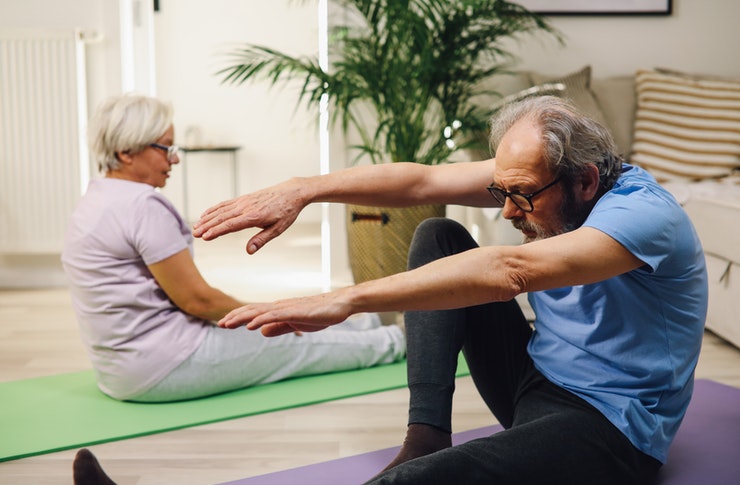Effective Strategies for Managing Knee Pain: Exercise and Home Remedies
Knee pain is a common ailment that affects millions of people worldwide, impacting their daily activities and overall quality of life. While the causes of knee pain can vary, ranging from injuries to chronic conditions, there are numerous effective strategies for managing and alleviating this discomfort. This article explores various approaches to knee pain treatment, focusing on exercise, home remedies, and methods to promote joint health and reduce inflammation.

Common causes of knee pain include:
-
Osteoarthritis
-
Ligament injuries (such as ACL tears)
-
Meniscus tears
-
Tendinitis
-
Bursitis
-
Patellofemoral pain syndrome
These conditions can lead to inflammation, reduced range of motion, and weakened supporting muscles, all of which contribute to ongoing pain and discomfort.
Which exercises are most effective for reducing knee pain?
Exercise plays a vital role in managing knee pain by strengthening the muscles that support the joint, improving flexibility, and promoting better overall joint function. However, it’s essential to choose exercises that don’t exacerbate existing pain or cause further injury. Here are some effective exercises for reducing knee pain:
-
Low-impact aerobic exercises:
-
Swimming
-
Cycling
-
Elliptical machine workouts
-
-
Strengthening exercises:
-
Straight leg raises
-
Wall squats
-
Hamstring curls
-
Calf raises
-
-
Flexibility exercises:
-
Knee extensions
-
Hamstring stretches
-
Calf stretches
-
-
Balance exercises:
-
Single-leg stands
-
Tai chi
-
Yoga poses that focus on balance
-
It’s important to start slowly and gradually increase the intensity and duration of exercises as your strength and flexibility improve. Always consult with a healthcare professional or physical therapist before beginning a new exercise regimen, especially if you have existing knee issues.
What home remedies can help alleviate knee pain?
In addition to exercise, several home remedies can provide relief from knee pain:
-
RICE method: Rest, Ice, Compression, and Elevation
- This approach is particularly effective for acute injuries or flare-ups of chronic conditions.
-
Heat therapy:
- Applying heat to the affected area can help relax muscles and increase blood flow, particularly beneficial for chronic pain.
-
Massage:
- Gentle massage of the knee and surrounding muscles can help reduce tension and improve circulation.
-
Herbal remedies:
- Turmeric and ginger have anti-inflammatory properties that may help reduce pain and swelling.
-
Epsom salt baths:
- Soaking in warm water with Epsom salts can help relax muscles and reduce pain.
-
Essential oils:
- Some people find relief using essential oils like peppermint or eucalyptus for their analgesic properties.
-
Weight management:
- Maintaining a healthy weight can significantly reduce stress on the knees.
While these home remedies can be effective, it’s important to remember that persistent or severe knee pain should be evaluated by a healthcare professional.
How can diet and lifestyle changes impact joint health and inflammation?
Diet and lifestyle choices play a significant role in managing knee pain and promoting overall joint health. Certain foods and habits can either exacerbate inflammation or help reduce it:
Anti-inflammatory foods:
-
Fatty fish (salmon, mackerel, sardines)
-
Leafy green vegetables
-
Nuts and seeds
-
Berries
-
Olive oil
-
Turmeric and ginger
Foods to avoid or limit:
-
Processed foods
-
Refined sugars
-
Excessive alcohol
-
Red meat (in large quantities)
Lifestyle changes:
-
Maintaining a healthy weight
-
Staying hydrated
-
Getting adequate sleep
-
Managing stress through techniques like meditation or deep breathing exercises
-
Avoiding prolonged periods of inactivity
By incorporating these dietary and lifestyle changes, individuals can support their joint health and potentially reduce the severity and frequency of knee pain episodes.
What are some professional treatment options for persistent knee pain?
While home remedies and lifestyle changes can be effective for managing knee pain, some cases may require professional intervention. Here are some treatment options that healthcare providers might recommend:
-
Physical therapy:
- Customized exercise programs and manual therapy techniques to improve strength, flexibility, and joint function.
-
Medications:
- Over-the-counter or prescription anti-inflammatory drugs, pain relievers, or corticosteroids.
-
Injections:
-
Corticosteroid injections for short-term pain relief
-
Hyaluronic acid injections to improve joint lubrication
-
-
Orthotic devices:
- Knee braces, supportive shoes, or custom orthotics to improve alignment and reduce stress on the joint.
-
Regenerative medicine:
- Platelet-rich plasma (PRP) therapy or stem cell treatments to promote healing and reduce inflammation.
-
Surgery:
- In severe cases, surgical interventions like arthroscopy or joint replacement may be necessary.
It’s crucial to work closely with healthcare professionals to determine the most appropriate treatment plan based on the specific cause and severity of knee pain.
In conclusion, managing knee pain effectively often requires a multifaceted approach that combines exercise, home remedies, lifestyle modifications, and, when necessary, professional medical interventions. By understanding the various strategies available and implementing them consistently, individuals can significantly improve their knee health, reduce pain, and enhance their overall quality of life. Remember that what works best can vary from person to person, so it may take some time to find the most effective combination of treatments for your specific situation.
This article is for informational purposes only and should not be considered medical advice. Please consult a qualified healthcare professional for personalized guidance and treatment.






